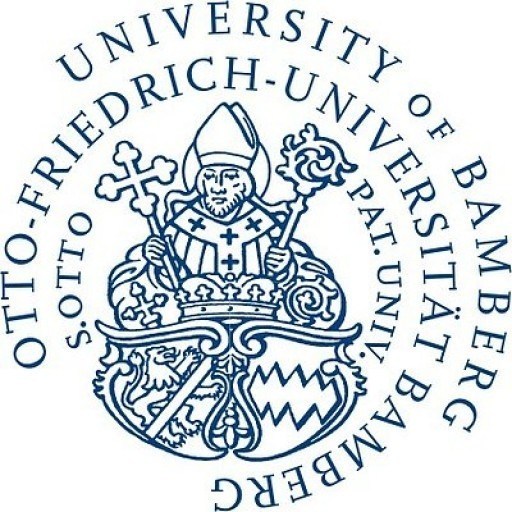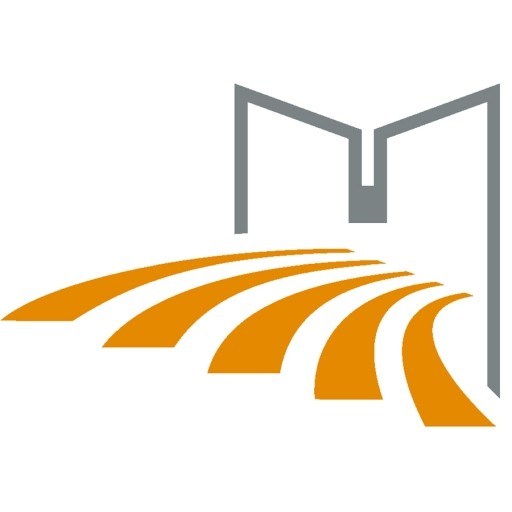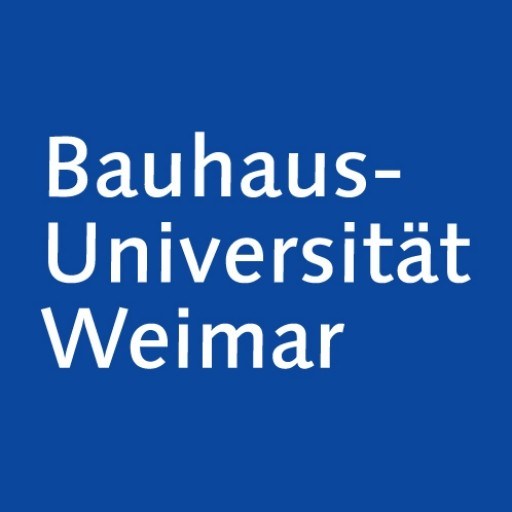Photos of university
International Legal Theory with European Academy of Legal Theory at Goethe University Frankfurt offers a comprehensive and interdisciplinary approach to understanding the foundations, development, and future challenges of international law. This program is designed for students who wish to analyze the theoretical underpinnings of legal systems, explore the philosophical aspects of law, and engage with contemporary issues affecting global legal frameworks. The curriculum combines advanced coursework in legal theory, international law, and European law, providing students with a robust understanding of how legal principles are shaped by political, social, and economic forces across different jurisdictions. Students will examine key concepts such as sovereignty, justice, human rights, and legal interpretation through a combination of lectures, seminars, and research projects led by renowned scholars affiliated with the European Academy of Legal Theory. The program emphasizes critical thinking, comparative analysis, and empirical research methods, preparing graduates for careers in academia, policy-making, international organizations, and legal practice. Participants will also benefit from the university’s unique collaborative environment, gaining insights into European legal traditions while engaging with global legal issues. With a strong focus on current debates in legal philosophy and practical implications for international relations, this program aims to cultivate innovative legal thinkers capable of contributing to the evolution of international law in a complex world. The degree prepares students not only for advanced research or doctoral studies but also for roles in legal consultancy, international institutions, and NGOs committed to justice and the rule of law worldwide. Throughout the program, students will have access to seminars, workshops, and conferences, fostering an active engagement with ongoing debates in legal theory and international law. Graduates will be equipped with the analytical skills and conceptual knowledge required to critically assess and shape legal institutions for a more just and equitable global society.
Educational organisation
The obligatory part of the curriculum consists of three compulsory modules (A-C), of three elective modules out of seven (E1-7), and a Master's thesis (D). Students may stay at Goethe University Frankfurt during the entire academic year. Alternatively, they may instead attend modules in Stockholm, Brussels, or Florence during the spring/summer semester. Moreover, they are welcome to attend more or less the whole set of modules.1. Compulsory modules:
A- and B-modules: compulsory main basic courses (jurisprudence historically and systematically, jurisprudence and legal comparison; European integration)
C-module: compulsory methodology (link between various approaches in A- and B-courses and reflection/reconsideration of the interdisciplinary context of legal theory) and additional research courses in preparation for the Master's thesis (research practice).
D-module: Master's thesis
2. Elective modules:
E-modules deepen the basics of jurisprudence taught in A-, B- and C-courses, with special focus on the philosophy of legal doctrine in various fields of law; each elective consists of an introductory course and two advanced seminars.
According to current developments in legal theory, single elective courses may be additionally integrated into the programme.
Obligatory classes will be taken by around 25 international students. Elective classes will have fewer participants (minimum number: seven) and will be open to other students. Classes will mostly be taught by renowned academic teaching personnel and partly by legal practitioners.
The academic year will start with the winter semester (October-February) in Frankfurt, consisting of modules A1-3, B1-2, E1, E2 or E3, C1, and C2.
There will be an introductory programme at the University of Brno on legal writing and a preparatory week in Frankfurt, both subsequently in early October before the beginning of regular class in mid-October. Additionally, there are winter or summer schools in Palermo and possibly other places. There are no classes from mid-March to mid-April.
Spring/summer semester (mid-April to early July) takes place from April to early May in Frankfurt (E4, E5) and late May to early July at ULB and EUI Florence.
The so-called "Third Term" (July-September, no courses) facilitates an optional research stay at a partner university or another partner of the Third Term Network ("mobility phase D") in Europe or Germany.
Study abroad unit(s)
Optionally, participants spend the second semester of the programme at partner universities of the programme in Brussels (ULB) and Florence (EUI Florence).Within the Third Term Network, for supervision of the students' Master's theses in the last semester of the academic year, students may study in cooperation with a personal supervisor at the partner universities of the European Academy of Legal Theory, namely, University of Bologna, Université Libre de Bruxelles (ULB), Freie Universität Berlin (FU), Jagiellonian University Cracow, University of Lucerne, University of Stockholm, further associated partners contributing to the activities of the Third Term Network such as the University of Oxford (J. Gardner), Sciences-Po Paris (M. Xifaras), Paris Ouest Nanterre (E. Millard), European University Institute Florence (EUI, G. Sartor), the universities of Palermo (I. Trujillo), Groningen (P. Westerman), Belgrade (M. Jovanovic), Pécs (Z. György Balogh), and others. Within Germany, there are partners at Freiburg, Göttingen, Hamburg, and Munich. In addition, close cooperation exists with the International Association for Legal and Social Philosophy (IVR).
Internships
The programme provides no internships. However, some seminars will provide close contact with legal practitioners.Forms of assessment
The programme comprises 60 ECTS.The credit points are awarded for the obligatory modules A-D and at least three elective modules of 7 ECTS each, identical to nine courses (three special courses, six advanced seminars) of 21 ECTS in total.
In general, each module consists of three classes. (Ungraded) assessments of performance provide proof of regular and active attendance. Style and scope of assessments are announced by the teacher at the start of the course. Positive assessments of performance in both obligatory module parts are required for admittance to the final module exam. The Master's thesis consists of 17,000-20,000 words of text.
Course objectives
Students will be equipped with knowledge of the history of ideas, legal philosophy, and legal theory, sensitising them for the preconditions for legal doctrines/dogmatics. The modules impart interdisciplinary competences by introducing basic concepts of practical and political philosophy, sociology, and cultural studies and raise awareness of the specific achievements of law in societal integration. All in all, students will meet or become familiar with key figures in European and international scholarship in legal theory and notably with Frankfurt's scholars including leading scholars of the Frankfurt School (such as J. Habermas, A. Honneth or K. Günther).A-modules are charged with imparting two perspectives of the LLM programme: a classical legal theory and a user-oriented legal theory (in preparation for C-modules). Participants acquire competences to find their bearings within the complexities of traditions of legal analysis and are able, on this basis, to develop preferences for selection of subsequent elective modules (E-modules). B-modules enable participants to identify problems of comparative law and, possibly, develop solutions. In particular, students are able to reproduce an account of the main factors of European integration, and to assess them critically. At the same time, they are able to analyse specific characteristics of globalisation. Methodologically, B-modules enable students to tackle problems of translation and reception of foreign legal orders conceptionally. C-modules enable the reasonable handling of discipline-specific approaches/methodologies. Students acquire the ability to select these for their own research. They are also able to extend these competences to their own research in order to develop a design for their Master's thesis that will be typically outlined within C-modules. In addition, C-modules also provide the competence to employ the basic functions and applications of new ICT tools for the practice of legal scientific work.
Language requirements
- A test result in accordance with the International English Testing System (IELTS 7 points minimum), or
- Test of English as a Foreign Language (TOEFL), Internet-based test 100 points minimum, with the following minimum section requirements: reading: 20, listening: 20, speaking: 20, writing: 20, or
- any equivalent recognised English language proficiency certificate
Academic requirements
For the Master of Laws in Legal Theory (LLM), the following requirements must be met:- Graduates must hold a basic degree in law or a basic degree in another field of study relevant to legal theory (e.g. arts, humanities or cultural, social, political, or economic studies) with a minimum duration of six semesters (180 ECTS).
- In general, they should also prove a minimum of one year of professional and/or research experience outside the basic degree programme prior to the start of the Master's programme in Legal Theory.
- Applicants who do not have English as their first language must include evidence of English language proficiency.
Enrolment fees
Goethe University charges an administrative fee of approx. 360 EUR per semester (less than 730 EUR per year). This includes a ticket for public transport. The "magic ticket" entitles you to use buses, trams, and the underground in Frankfurt and the surrounding area. You can even use the regional trains to travel to various other cities in Hesse, e.g. Marburg or Giessen.Costs of living
The cost of living in Frankfurt depends on personal requirements and lifestyle. However, students should expect minimum expenses of approx. 940 EUR per month. This calculation is based on the following items: 800 EUR for rent, food, clothing, and study materials, around 81 EUR for compulsory but almost comprehensive health insurance, and approx. 59 EUR for the administrative fee (including free public transport).Job opportunities
In Frankfurt, 44,000 companies and organisations have approx. 464,000 employees on their payrolls. In addition, Frankfurt is the financial centre of Germany, with 350 banks, including the European Central Bank, 150 foreign banks, and the fourth-largest stock exchange in the world. Furthermore, Frankfurt is home to various cultural and research institutions. These are key players in a flourishing economy, offering students and graduates interesting jobs and internships. During your studies, there are plenty of job opportunities either at Goethe University itself (e.g. as a tutor or research assistant) or you may look for jobs and internships elsewhere in the greater Frankfurt area. Job opportunities are particularly interesting for students from abroad, e.g. at the airport and the trade fair. The "Studentenwerk" as well as the Career Services at Goethe University can help you to find a suitable offer. After you graduate, it is comparatively easy to find a job in the greater Frankfurt area, since it is one of the strongest employment regions in Germany. Furthermore, due to new laws, students from non-EU countries may also receive a work permit after graduation.Funding opportunities within the university
Under its tuition waiver programme, the Master's programme offers applicants the possibility to apply for a limited number of tuition fee waivers. Selection will be based on academic excellence. For related details, please refer to the information on the application form.Arrival support
The Law Faculty provides assistance in finding accommodation. In other respects, the International Office at Goethe University offers assistance.More importantly, alumni students from practically all over the world can offer assistance to international students, as they are experienced with living in Frankfurt and an international context.
Services and support for international students
The International Office of Goethe University offers a comprehensive range of advice and services on issues of visa/immigration, financing your studies, social life, and personal matters.See: http://www.uni-frankfurt.de/38294574?
At the International Study Center (ISZ) at Goethe University, ongoing German language support is available. ISZ offers several options to improve your language proficiency, such as a tandem project (language exchange, e.g. Spanish-German), German language courses (preparatory and continuous), and language training during your academic programme.
Check the website for more information:
http://www.uni-frankfurt.de/43662305
The student union ("AStA", http://asta-frankfurt.de/) provides advice and entertainment. Faith-based organisations offer opportunities for worship and intercultural exchange.
See: http://www.esg-frankfurt.de/
See: http://www.khg-frankfurt.de/
Accommodation
Frankfurt am Main offers a wide variety of accommodation, from university dorms to privately rented apartments. The biggest providers of dorms are the "Studentenwerk" (student services, http://www.studentenwerkfrankfurt.de) and churches.The 19 dormitories offer more than 1,700 different accommodation units starting from 120 EUR per month for a single room to up to 450 EUR for a family apartment of 45m².
For further information, see: http://www.studentenwerkfrankfurt.de/en/consulting-service/international-students/accommodation/.
We strongly recommend that students contact such organisations as soon as they receive their letter of acceptance to the programme, as these rooms are in high demand.









